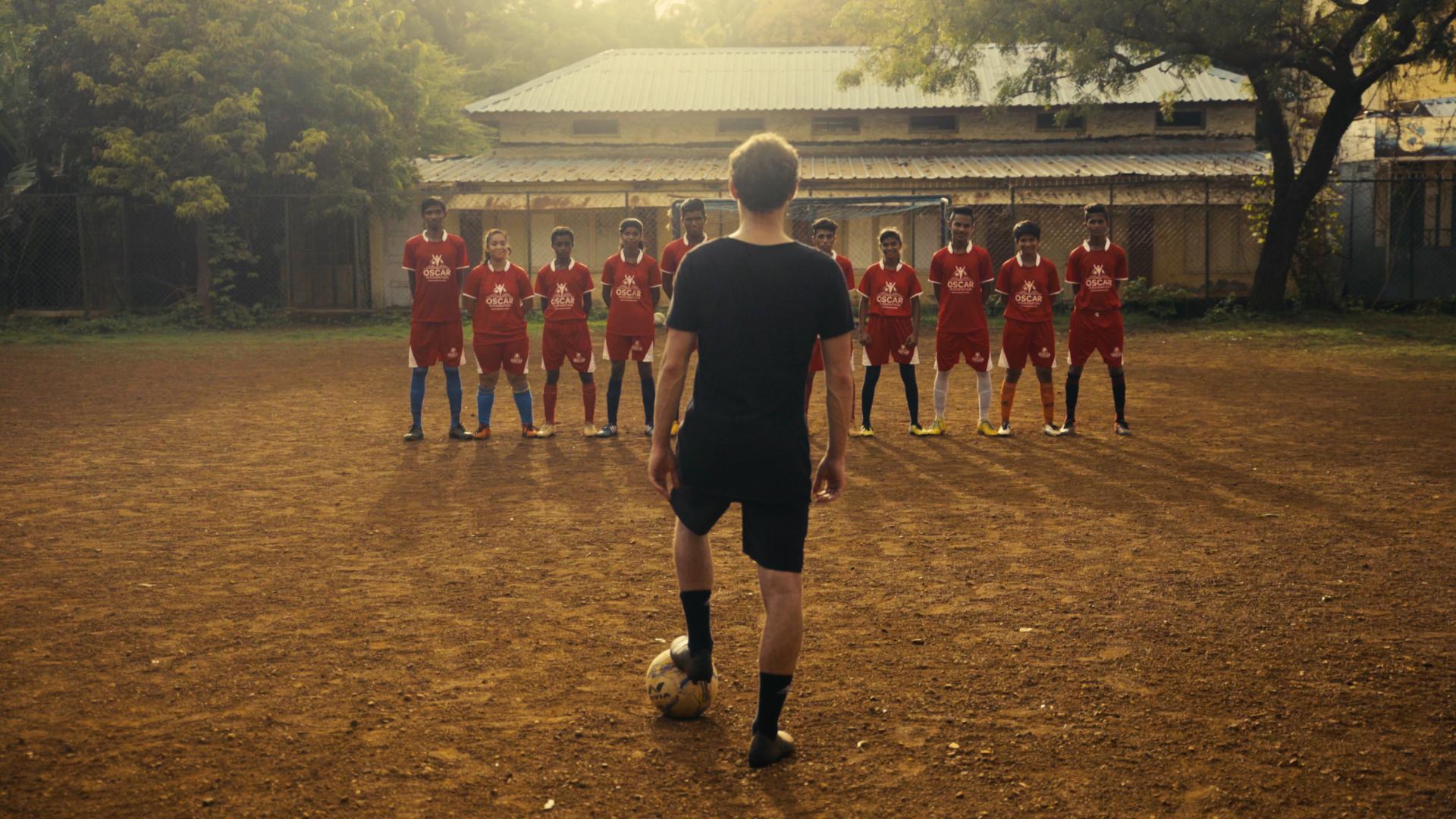Football is very popular around the world, but the same cannot always be said of those who play and manage it at a professional level. Inflated wages, tax evasion scandals and transfer fees in the hundreds of millions are just a few of the reasons that for many, the sport leaves a bitter taste in the mouth.
One charity, however, is looking to change all this. Common Goal is an initiative launched by Manchester United player Juan Mata and streetfootballworld, which seeks to build a movement where a slice of the football industry’s huge wealth goes towards changing the world for the better.
Professional football players are asked to pledge at least 1% of their wages to a collective fund, which will be used to support high-impact football-based charities that advance the UN Global Goals. Some of the game’s top players, including stars from Juventus, Manchester United and Borussia Dortmund, have already signed up and are urging their teammates to do the same.
Football players have a mixed record when it comes to launching their own charities. The Didier Drogba foundation, for example, was issued with an action plan for improvement in 2016 by the Charity Commission, who deemed that it may have ‘misled’ donors. Mata’s initiative, on the other hand, looks like it could buck this trend.
1% doesn’t sound like much at first – but when you consider the enormous sums that top-flight players earn, even a tiny proportion of a player’s wages could have a huge impact for Common Goal’s beneficiaries.
The average salary of a Premier League player is around £45,000 a week, which works out to be about £2,340,000 over the course of a year. If the average player pledged to donate 1% of this, Common Goal would receive £23,400. A decent – if not earth-shattering – donation. Pledges from the game’s top-earning players could make a much greater impact. 1% of Messi’s £18.85m salary would mean £188,500 per year for Common Goal, and Ronaldo would give £220,800 of his staggering £22.08m wage. A pledge from the world’s top-earning player – Ezequiel Lavezzi of Hebei China Fortune – would be worth £414,900 to the movement.
If the entire first team squad of a Premier league club made the same pledge, the money would really start to pile up. The average total wage bill for a Premier League club is around £114 million, so a donation of 1% would amount to about £1.14 million. If FC Barcelona’s squad pledged 1% of their eye-watering £279 million combined wages, Common Goal would receive almost £3 million per year.
All in all, if every player in Europe’s top 5 leagues were to take Common Goal’s pledge, they would donate a total of £73m - enough to make a real impact and change the world for the better. And what if the movement could be expanded to take an even greater slice of the football industry as whole, which is worth over £27 billion?
Many will say that this is long overdue, and rightly so. Football has had a great positive impact on the lives of many people, but rising ticket prices, overpriced merchandise and outrageous agent fees have fomented a powerful sense that the men in suits who run the sport aren’t giving enough back to the worldwide following that sustains it. This is especially true given the overwhelming popularity of the sport in developing countries and traditionally working-class communities.
What truly makes the initiative look like a winning prospect, however, is the fact that it provides benefits for both donors and beneficiaries. As well as helping those in need, the footballers who take part will reap huge reputational benefits in an age where for sports stars, PR is almost as important as performances on the pitch. The sport as a whole will also receive a reputational boost, helping to ease the concerns of those who are appalled that football players earn so much more than nurses, carers and firemen.
There are some barriers that Common Goal needs to address as the movement grows. Most notably, it’s important for them to prove to players and the public that the football-related development projects they support are really the best use of the cash they receive. Would it not be better for them to support high-impact projects such as medical research and de-worming, or even to fund established development projects that don’t necessarily have a sporting element? The founders would be well-advised to learn from the expertise of established grant makers as they establish a framework for distributing funds.
They will also need to put a robust plan in place to make sure the movement doesn’t fizzle out after the current generation of footballers have retired. Player careers are so short that if recruitment doesn’t remain constant over the years, funding could quickly dry up when the old guard hang up their boots. Perhaps the movement needs to be established and encouraged at a club level (or even with the help of the PFA union) to ensure that young players are nudged to pledge their 1% from the day they break into the first team.
If these barriers can be overcome, then Juan Mata and his partners may have struck upon a fantastic idea. Football has had an incredible positive impact on many lives over the years, from delighting fans to bringing divided nations and communities together. It’s high time that the industry matches this by sharing some of the vast wealth in the game with those who need it most.

